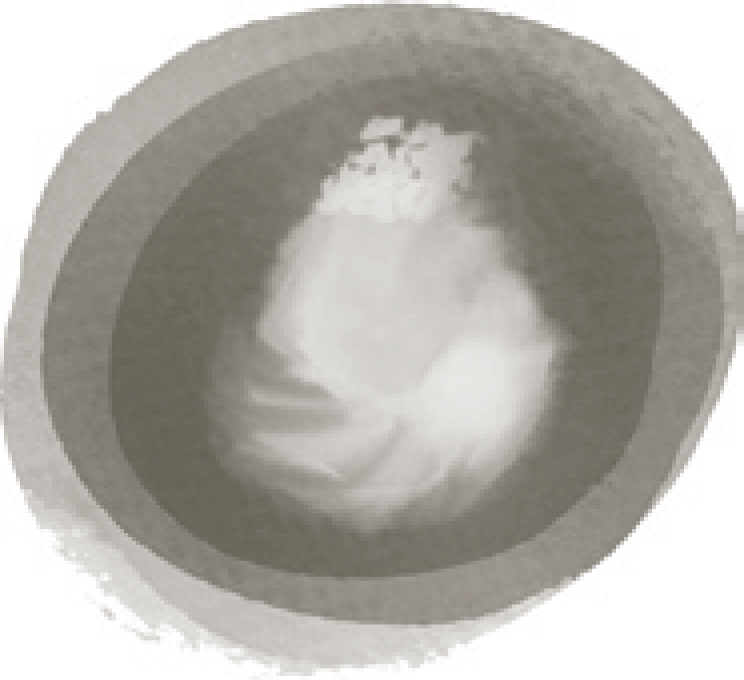
just this—just shouting
On any given spring evening in Oakland, evening meditation is water dripping from the faucet in rhythm. It falls into a bowl beneath the faucet. The full bowl of water overflows. The giving and receiving is slow enough that each drop brings attention. Sometimes two drops come together. The plane flying above the house joins the rhythm of the water dripping into the bowl. A hawk calls out high notes. Not for long. Cars groan across paved roads. The rhythm of the water dripping continues. And with the rhythm, inner silence remains.
Suddenly, there’s shouting in the streets. My writing shifts. Writing that clashes with someone shouting is writing from the shouting and not the silence. Or is the shouting from the silence? Is there still suchness in the shouting, in the word? Suchness is just this. It’s a moment experienced without description or reason. Such as this shouting. A moment in life that, if spoken with too many words “such as this,” is no longer. If I describe the shouting and judge the person shouting, suchness moves on. Suchness lands when there’s nothing else to be said. Suchness. The meaning can be taught, the word looked up, and still it means nothing until it has been experienced.
Keep writing in the shouting? Yes. It’s part of what is. Like a fleeting blue jay, a feather falls from its body, the bird flies—landing four hundred feet up, tipping a redwood tree. Maybe you don’t see the bird. Maybe you don’t see the feather falling. Maybe you have never seen a redwood tree or sat on the tip of one. The words still bring you to the experience that rose from the silence, like shouting. The words are not suchness in themselves but come from suchness—just that, just this. Just shouting.
Suchness is a moment that is ancestral. If there’s a connection to those who have come before us, there’s a connection to suchness. A rare species of butterfly that was here before left its suchness for us. Seeing butterflies—ahhh, there it is, just that. Beings arise in potent moments of suchness and have done so a billion times.
My poetry was born in the era of shouting. The onslaught of hatred at the time didn’t fit into seventeen syllables. The riots I witnessed could not be styled into iambic pentameter. Haiku clashed with the civil rights movement, where shouting felt necessary, and also screaming, if there were no words. Whipping out three to four poems a day to stay sane couldn’t have form. Shouting was the order.
Shout I did. Reading Langston Hughes and Nikki Giovanni out loud in a shared bedroom with my youngest sister was a pastime. Listening to the Last Poets and Gil Scott-Heron called the restless soul and made it more restless. I was alive. I shouted to ultimately do what the ancient poet Rumi said in one of his poems of suchness: “Don’t fall back to sleep.”
The inner silence speaks so clearly and frequently, its message begs to be captured. But the shouting, the poems of passion, persist. Poetry of description, of meaning, wants to live alongside the poetry of silence, of no meaning, no description, eternal and ever flowing.
Decades later, reading the words of ancient Zen poets like Basho brought peace from the silence. But could the urgency of fighting/resisting/stopping injustice be heard if clinging to Basho?
Yet the ancient Zen poems were fountains of water heard in the distance. The poetry of Ryokan or Rengetsu calms me. Does a child of the revolution bend down to smell and touch the flowers while some die in the streets?
For guidance, I am called to ancient wisdom.
The old Zen poets taught without teaching. They were guides into the silence, into suchness—bringing seekers to silence. The ancient poetry opened gateways to meadows or oceans. The words were a walk in the mountains or the forest without moving from one’s seat of stillness. Can shouting open a gateway? Yes.
A child of the revolution can shout, bow down to smell the flowers, and write poetry filled with the ancient silence used by Basho. A revolutionary child can roll in the grass and pick blackberries, rest their head on the pillow of the earth, and watch the sun rise and the sun set, and meditate with the stars that are sure to come out at night. And if this revolutionary child feels like howling at the moon, they can do so with great force and from the heart. There is suchness in everything.
Gatherers of silence are not quiet for quiet’s sake. Eventually, they are heard, and what is spoken will not come from fear, doubt, and distrust but from the dark waters beneath the earth that sing wisdom songs. Their shouting will not be ignored, their stopping to smell juniper will not be seen as losing pace or slipping away from the world. They will be in step with the earth.
In the setting sun, I walk the trails lined with sage. I hear something behind me. I turn to see who’s following me. The wind blows in my ears. There’s no one, or so it appears. Nothing can be added if the experience of suchness is to be met.
I bend down to smell the flowers in the middle of the resistance.